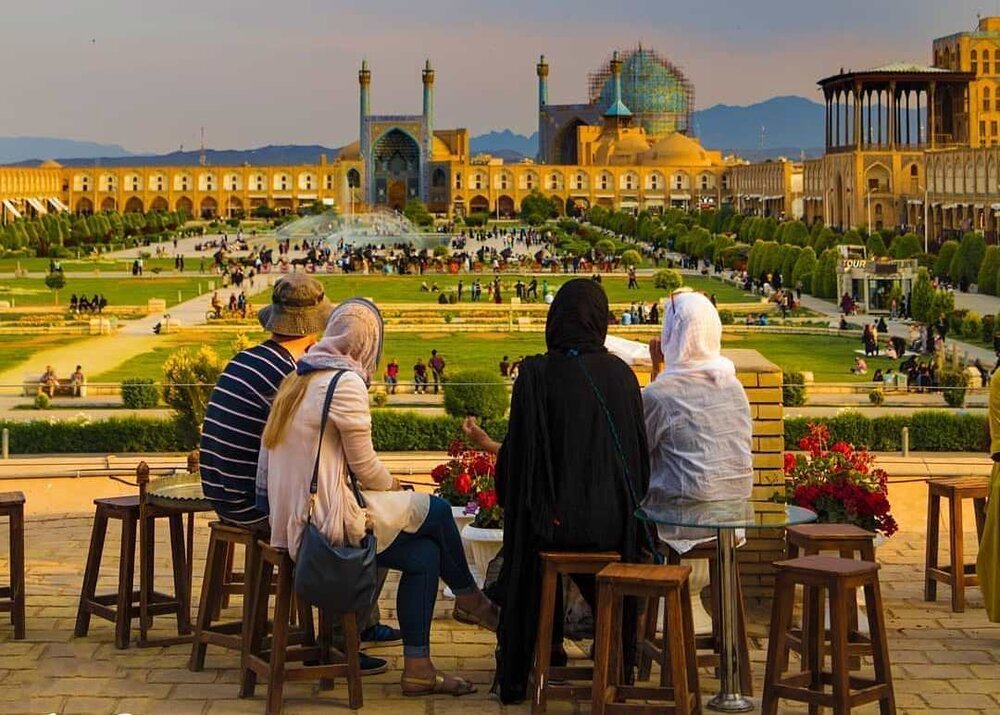Iran tourism still holds its own despite virus restrictions, official says

TEHRAN – Iran's tourism industry has made every effort to stand on its own two feet despite the considerable damage caused by the virus pandemic.
A country’s prosperity depends on its economic and social development, and the tourism industry plays a key role in achieving this goal, the president of Iran’s University of Science and Culture Seyyed Saied Hashemi has said.
He made the remarks during the two-day symposium of One Hundred Years of Iranian Tourism, which came to an end on Wednesday.
After the coronavirus crises, tourism can hopefully be a positive influence on people’s lives, he added.
Many nations owe their social and economic progress to [their] tourism [industries], so it is hoped that this symposium and such events can provide a meaningful solution for the new [Iranian] government, he noted.
Due to the lack of adequate coordination and cooperation between scientific institutions on the one hand and policy-makers on the other hand, the country may have faced many problems in the tourism industry during this century, and that is why it could not get enough benefit from the tourism despite having good potential, he mentioned.
Another speaker at the event, Mohammad Hossein Imani Khoshkhu, the head of the industrial park for science also said there is no connection between tourism sectors in the country, while all organizations and devices must help each other to develop tourism.
For instance, currently, medical tourism does not exist in the country, but there are international patients and the medical tourism activists have now become taxi drivers at airports instead of activists for related tourism, he added.
Back in July, ISNA reported that Iran’s tourism industry has suffered a loss of some 320 trillion rials ($7.6 billion at the official exchange rate of 42,000 rials per dollar) since the outbreak of the coronavirus pandemic.
The pandemic has also ruined more than 44,000 jobs in the once budding travel sector of the country, the report added.
As a result of the outbreak of the coronavirus in Iran and the subsequent unemployment and financial losses, accommodation centers suffered the most. These statistics cover the period between February 2020 and the spring of 2021.
Only months into the outbreak, Zarghami’s predecessor, Ali Asghar Mounesan, lamented that the number of foreign travelers to Iran was drastically plunged due to the pandemic.
“Tourism of the country was growing before the corona [outbreak], its revenues reached $11.7 billion in 2019, which accounted for 2.8% of GDP, nearing the average share of tourism in the world GDP, which was 3.2 percent,” Mounesan said.
He added 8.7 million foreign nationals visited Iran during the [Iranian] year (1398), adding that Iran was ranked as the second fastest-growing country in tourism based on data compiled by the World Tourism Organization.
So far, panels of travel experts have mapped out new marketing strategies hoping the sector would get back on its feet once again. Earlier this year, the Head of the Iranian Tour Operators Association Ebrahim Pourfaraj asked the government to issue tourist visas for the international applicants who have been fully vaccinated against COVID-19. “The Ministry of Health and the National Headquarters for Coronavirus Control can at least agree that the international tourists who have received the [second dose of] coronavirus vaccine would be allowed to enter Iran.”
The expert lamented that the continuation of such a trend would result in losing international tourist markets more than before. “Or at least they should make it clear so that we can respond appropriately to foreign companies and tourists to not to miss the international tourist markets more than before.”
Iran is potentially a booming destination for travelers seeking cultural attractions, breathtaking sceneries, and numerous UNESCO-registered sites. Under the 2025 Tourism Vision Plan, Iran aims to increase the number of tourist arrivals from 4.8 million in 2014 to 20 million in 2025.
Even before the pandemic, Iran’s tourism was already grappling with some challenges, on top of those Western “media propaganda” aimed at scaring potential travelers away from the Islamic Republic. Some experts believe Iran is still somehow “unknown” for many potential travelers due to such a “media war”.
They, however, consider bright prospects for the tourism sector of the country if it vigorously pursues comprehensive strategies to counter U.S.-led propaganda and strict sanctions, yet does its best to loosen tough travel regulations.
ABU/AFM
